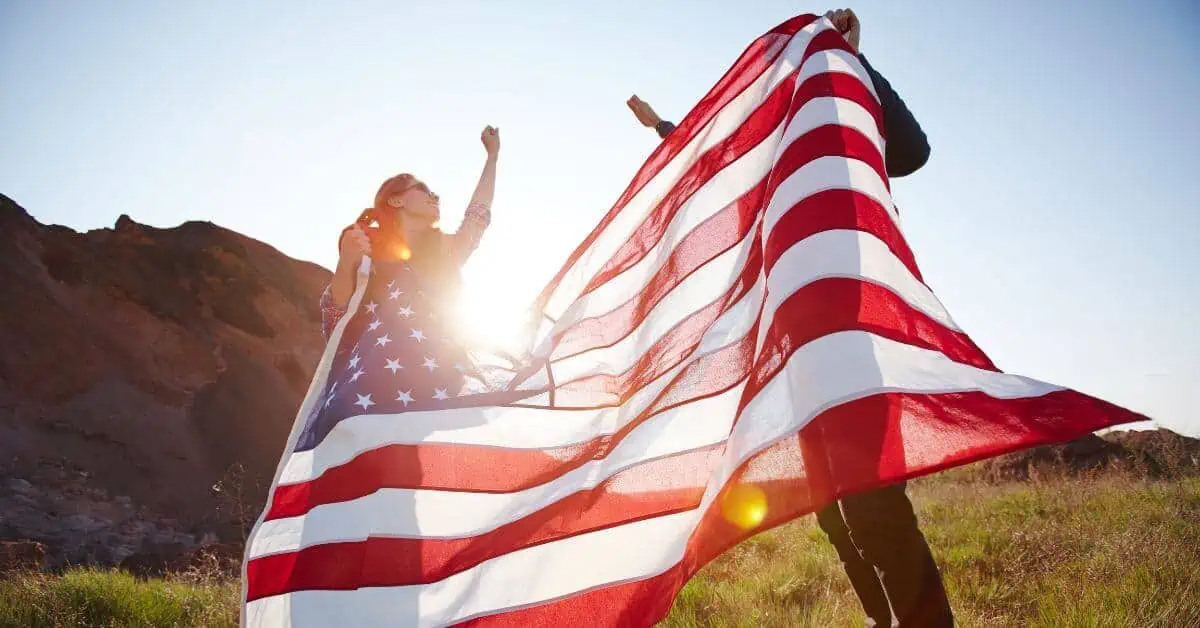Political polarization has been on the rise and can negatively impact our personal connections, especially when it comes to dating and relationships. When we hold different political views, it can seem difficult to find common ground, communicate clearly, and keep relationships happy and healthy.
If you’re a conservative, liberal, or somewhere in between, you are aware that political views have invaded almost every aspect of society, including dating apps.
Being more attuned than ever before to issues associated with labels, our emotional reactions are heavily influenced by our preconceived notions, cultural upbringing, and past experiences. Our responses to labels and public alignment with topics, particularly when seeking relationships, must adapt to the increasingly heated political atmosphere.
The impact of a person’s political leanings in romantic relationships and dating changes when problems are reduced to their most basic forms and become merely binary and emotional. The need for affirmation and group identification drives much of our public display and alignment in the current environment.
Over the course of the previous six years, political affiliation was mentioned by 187% more people on dating apps. Even so, we know that it is not always safe to assume a person’s beliefs based on their political affiliation or any other classification. Should we take the chance to find out who our potential mates really are, or are we satisfied to keep perpetuating our preconceived notions?
It’s challenging to make this compromise when we’re still recovering from a pandemic, and political labels have the potential to incite powerful emotions like fear and anger. More and more people are using their political membership as a statement of their social and moral beliefs, leaving little room for compromise on social and dating platforms.
Dating Deal Breakers
Given the significance of political convictions, political labels are used as litmus tests in dating app profiles. According to Pew Research Center, seven out of ten Democrats have ruled out dating a Trump supporter.
According to the poll, 84% of singles are not looking for a relationship with someone who shares their political beliefs. Of the women polled by OkCupid, 72 percent shared this sentiment. Hinge, OKCupid, and Bumble are just a few of the major dating apps that have included filters to assist users in discovering more compatible partners based on their political leanings.
Is there a risk of further isolating people, or is this simply good sense in dating and romantic relationships, where getting along with others on an emotional and psychological level is crucial?
When political identification is seen as predictive of societal behaviors — from wearing a mask to law enforcement tactics — then “liking long walks on the beach at sunset” isn’t exactly a dater’s top priority. It has nothing to do with logic, fairness, or scientific fact. Due to the inherent conflict between the two political views, people tend to respond instinctively, rather than rationally, to one another.
Political arguments do simplify matters; one way the brain does this is by having an inbuilt cognitive tendency toward simplifying information processing by reducing complex ideas to a generalization. Problematic stereotyping arises when individuals fail to recognize their own implicit biases and prejudices rooted in these generalizations.
Politicians, however, have a vested interest in keeping voters as angry and divided as possible. Many of our public leaders engage in a variety of actions—including name-calling, scare-mongering, false information, and bullying—that reinforce and promote the use of tropes and labeling to denigrate proponents and belittle opposing perspectives.
This strategy is harmful to society since its effects will last well beyond the next election cycle. When people are repeatedly subjected to attacks, their preconceived notions become more deeply rooted in their psyches.
Curating Compatibility
A political designation in a dating profile is more than simply a means to show potential matches that you care about your beliefs. They serve as a boundary, filtering out those with political views that make a romantic connection impossible in people’s eyes.
The social and political norms associated with dating have shifted, which may reflect a decline in politeness or, as some have suggested, an increase in narcissism. After all, at the height of the pandemic, putting on a mask in public has ceased to be about the mask when it is associated with politics rather than science.
Rather than being about protection from a virus, it was a declaration of values and ideas. Anger with current political circumstances amplified the mask’s meaning as a symbol for support for social causes unrelated to COVID-19.
Consequently, many people will automatically dismiss a match whose political views differ from their own by swiping left. Politics are so divisive and difficult to reconcile that they serve as a barometer of the relationship’s viability. During times of widespread anxiety and worry, we all need the reassurance that comes from having our political views confirmed.
After Trump’s victory, the chasm between the two sides grew so vast that it has prompted the development of niche dating apps for those with shared political views, such as “Righter” and “Liberal Hearts.”
It makes perfect sense on the face of it. Even so, don’t assume that the other person shares your idea of a category or label just because you two seem to have a lot in common value-wise. It’s perfectly OK to restrict your social activities to people who share your values—we get it.
But assumptions based on politics have the potential to derail an otherwise promising connection. While it may be challenging, it is essential to remember that a person’s ideas and values cannot be assumed based on their political label.

Since labels are subjective, internal and exterior definitions are unlikely to coincide during anxiety and social strife periods. Remember that you may be inclined to assume the worst about someone automatically. Humans are capable of holding many, often conflicting, identities at once. It’s not always the case that the names other people give you reflect your true beliefs.
Final Thoughts
Even if we all have our own list of beliefs that would make us happy in a relationship, the most basic of them must hold true for both partners. But what matters to each of us is different, both in terms of how important it is and how we see it.
So, if you’re looking for a date and see someone that appears to be a good match except for their politics, it’s always best to find out more about them before relying on labels. While impulsive, emotionally-driven decisions may seem reasonable on dating apps, they may easily become appropriate to you in other social settings, creating even more distrust and conflict.
While maintaining connections and relationships in an era of political divisiveness may seem impossible at times, keep in mind that it is doable. Even amid political divisiveness, we can develop strong and healthy relationships by listening to one another, respecting one another’s opinions, and focusing our attention on the things we have in common. Notwithstanding the political divide, it is crucial to remain mindful that healthy interpersonal connections can be maintained.
Take care of yourself, put your relationships before politics, and manage stress by maintaining a healthy outlook when going on dates with someone who voted for “the other guy.”
